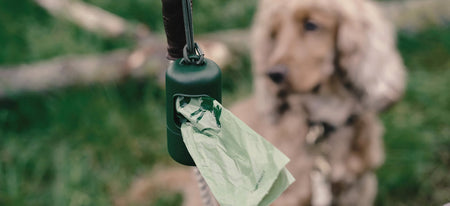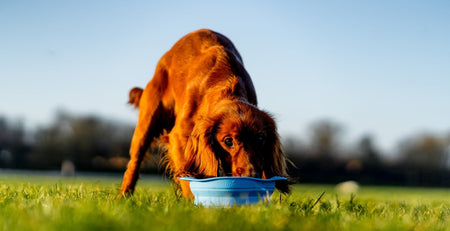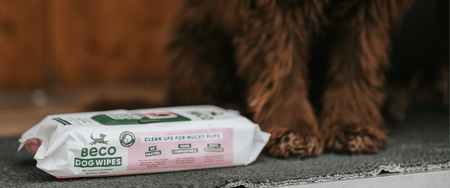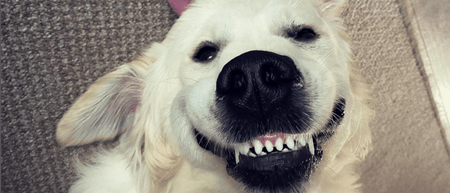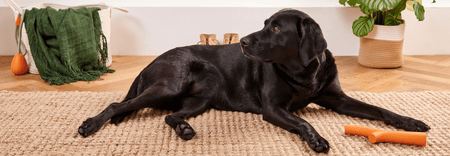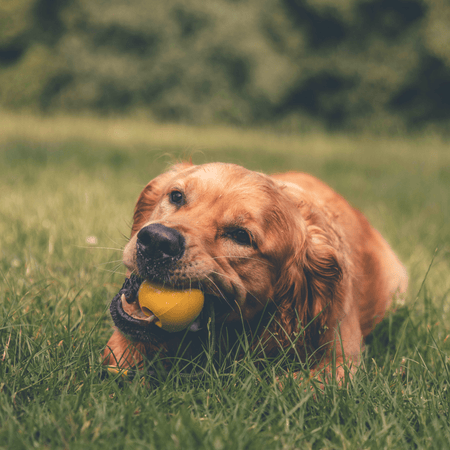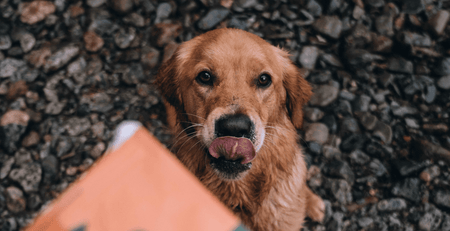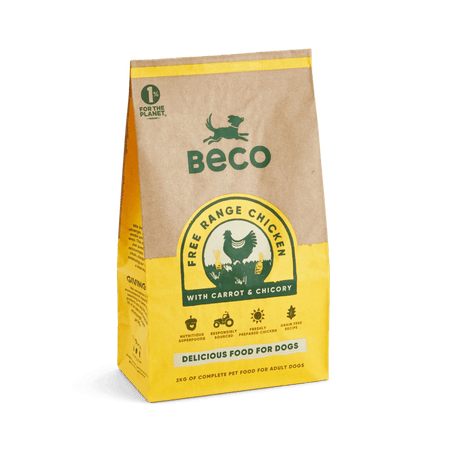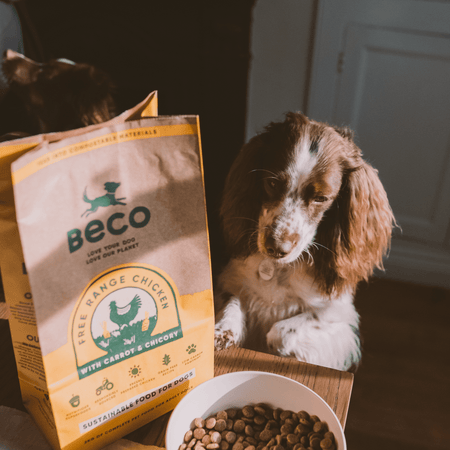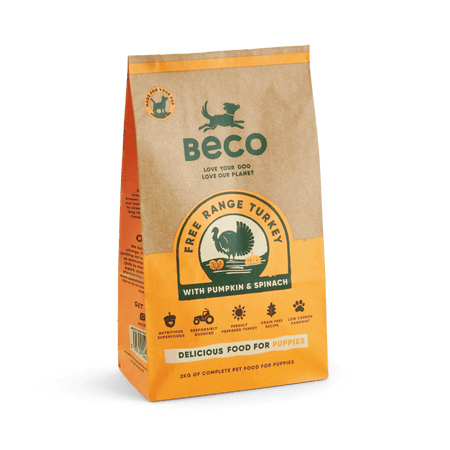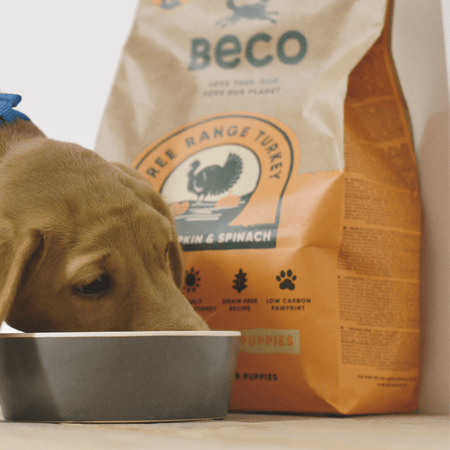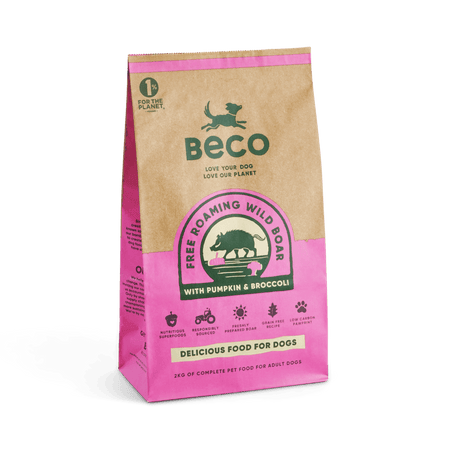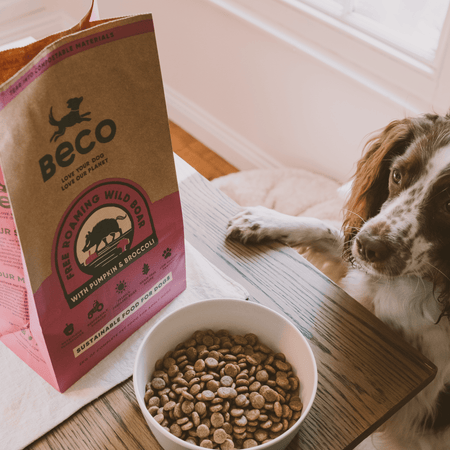Diarrhoea is an unpleasant (though not infrequent) aspect of being a dog owner, and always seems to occur at the worst possible of times. These messy bowel movements happen for a variety of reasons, ranging from gastrointestinal illness to dietary imbalances.
Fortunately, however, there are several foods you can implement within your dog’s diet to reduce the frequency of diarrhoea experienced by your dog, if not mitigating it entirely.
What Causes Diarrhoea in Dogs?
-
Parasites, including tapeworms, hookworms and Coccidia.
-
Viruses, such as parvovirus (also known simply as parvo).
-
Bacterial infection, salmonella, for instance.
-
A non-transitional change in your dog’s diet, as its digestive tract isn’t given the chance to adjust to the new food.
-
Stress or anxiety.
-
Feeding your dog highly processed, unhealthy foodstuffs.
What to Feed Dogs With Diarrhoea?
When your dog experiences diarrhoea, it's important to know what foods can help alleviate the condition.
Here are 7 foods to try:
-
Plain Rice
-
Simple, Lean Protein (e.g., Plain Chicken)
-
Potatoes (Either Plain/White or Sweet)
-
Pumpkin
-
Porridge Oats
-
Carrots
-
Specially-Formulated Dog Foods
1. Plain Rice
Plain rice is one of the best foods you can feed a dog with diarrhoea. Why? Mainly, because it’s so easy for dogs to digest. Containing a large amount of fibre that absorbs water, rice can help stabilise your dog’s stools, making it an ideal choice for post-diarrhoea feeding. Wherever possible, use white rice, and most importantly, make sure it’s plain.
Packet/instant rice tends to have lots of other flavourings, additives and seasonings that can irritate your dog’s GI (gastrointestinal) tract again, so freshly prepared, plain white rice is all you should be looking for. Once cooked, allow the rice to cool to room temperature; if the rice is too hot, then this may irritate your dog’s GI tract again.
2. Simple, Lean Protein (Eg. Plain Chicken)
Low-fat protein sources are another good foodstuff to try when your dog’s stomach is feeling fragile; like plain rice, meats such as turkey and chicken breast (with the skin taken off) are relatively easy for your dog to digest, and in this case, blandness is a good thing.
Boil your chicken, as an example, and cut it up into small, bite-sized chunks. Again, let it cool to room temperature before serving it to your dog to avoid irritation. This can be served either on its own or with the plain rice you’ve prepared prior.
3. Potatoes (Either Plain/White or Sweet)
Potatoes – in whichever form they come – contain easily digestible starches which make them a suitable food choice for dogs with diarrhoea, as well as containing good levels of dietary fibre, which can help improve the solidity of your dog’s stools. Never feed your dog raw potato, whether they have an upset stomach or not, as this contains a chemical called solanine, which is toxic to dogs.
To prepare your potatoes, rinse them clean, peel and boil them, then finally mash them into a smooth consistency. Allow to cool to room temperature, and then feed to your dog. If your dog has diabetes, then you shouldn’t feed them potatoes given their relatively high sugar content.
4. Pumpkin

A naturally fibre-rich food, pumpkin can help better regulate your dog’s digestion and help with any diarrhoea it may have recently experienced. The fibre within the pumpkin adds ‘ruffage’ (no pun intended) that firms up a dog’s stool.
Pumpkin also contains what are known as prebiotics. These are special plant fibres that promote the growth of beneficial, healthy bacteria that aid gut health, overall. This will therefore help stave off any diarrhoea for your dog in the future. The best way to prepare pumpkin for your dog with diarrhoea is to use plain, canned pumpkin. This is preferable to fresh pumpkin as it has a lower water content; the water in fresh pumpkin can, again, contribute to loose stools.
It’s important, however, that the canned pumpkin you purchase is as plain as possible, and hasn’t had any additives or flavourings added; otherwise, the benefits you’re getting from the canned variety are effectively wiped out.
5. Porridge Oats
Porridge oats, when prepared correctly, can be a good way to firm up your dog’s bowel movements, acting as a sort of binding agent (similar in many ways to the way rice acts). High in dietary fibre, fully cooked porridge oats (note: it’s important that the oats are fully cooked, as raw oats can be upsetting to your dog’s stomach) will help regulate your dog’s stomach, when given in moderate quantities.
The fibre works by absorbing fluids and delaying the gastric emptying process, enabling more solid stools to firm, rather than watery diarrhoea, whilst the oats can also help better regulate your dog’s blood sugar levels. Cook using water, and don’t add any sugar or other flavourings.
6. Carrots
When boiled and mashed, carrots serve as a great foodstuff to be used when re-introducing your dog to food after a bout of diarrhoea. Carrots are high in dietary fibre, which like many of the other foods listed here, helps bulk out your dog’s faecal matter, as well as absorbing excess water.
Alongside their benefits in aiding diarrhoea recovery, carrots are also a good source of vitamin A, encourage better canine dental health, and are rich in beta-carotene which helps improve your dog’s eyesight - the old adage about carrots helping you see better in the dark is true, except it’s not just better in the dark, it’s better overall.
7. Specially-Formulated Dog Foods

Some dog foods (like ours) are designed specifically with a dog’s gastrointestinal system in mind; these foods, usually marketed as being for sensitive stomachs will typically feature high levels of prebiotics (see earlier in the article) as well as other ingredients that encourage a more stable gut biome environment.
What Not to Feed a Dog With Diarrhoea
When your dog has diarrhoea, it's equally important to know what foods to avoid. Here's a list of items you should not feed your dog during this time:
-
Fatty foods: These can further irritate the digestive system.
-
Dairy products: Many dogs are lactose intolerant, which can worsen diarrhoea.
-
Spicy foods: These can cause further gastrointestinal upset.
-
Raw or undercooked meats: These may contain bacteria that could exacerbate the problem.
-
High-fibre foods (except those mentioned above): Too much fibre can worsen diarrhoea in some cases.
-
Sugary foods or treats: These can feed bad bacteria in the gut.
-
Human medications: Never give your dog human anti-diarrheal medications without consulting a vet first.
Remember, if your dog's diarrhoea persists for more than a day or is accompanied by other symptoms, it's best to consult with your veterinarian.
Frequently Asked Questions (FAQs)
How Much Chicken & Rice Should I Feed My Dog With Diarrhoea?
It depends on the size and breed of your dog; as a general rule, start with a smaller amount than you’d typically feed your dog at a mealtime, as this gives your dog’s stomach a better chance of readjusting to feeding, and not bringing the food back up. In terms of ratio, opt for a half-and-half split between the carbohydrate and the protein.
Is Scrambled Egg Good For Dogs With Diarrhoea?
Yes! Scrambled eggs can definitely be good for dogs with diarrhoea when cooked plain. Packed with protein and easy to digest, this simple foodstuff is unlikely to worsen any bouts of diarrhoea that your dog may have experienced.
Is Pasta Good For Dogs With Diarrhoea?
Generally speaking, you should be OK to feed your dog with diarrhoea plain-cooked pasta such as macaroni. That’s because pasta is made from simple, plain ingredients that are unlikely to irritate a dog’s GI tract. As with all of these foods, make sure to let the cooked pasta cool before serving it to your dog.
Is Rice or Oatmeal Better For Dogs With Diarrhoea?
In truth, they’re much of a muchness when it comes to their benefits, regarding recovery from diarrhoea. Both contain good levels of fibre and both are easy to digest, so it probably comes down to which your dog naturally prefers. If you know they enjoy white rice, for instance, then there’s no point trying to convince them to have a small bowl of plain-cooked porridge oats.
When Should I Be Concerned About My Dog’s Diarrhoea?
A one-off episode of diarrhoea isn’t something to cause undue levels of concern, but if these bouts continue – if it persists for more than a day, for instance – or the diarrhoea is being experienced in conjunction with other worrying symptoms such as vomiting, for example, then that’s when you should get a veterinarian involved.
What Soothes a Dog’s Stomach and Helps With Diarrhoea?
Aside from the foods we’ve mentioned, the main thing you want to do is keep your dog’s fluid levels up. Apart from this, what’s going to best soothe your dog’s stomach is giving it time to adequately recover.
Can Chicken Give Dogs Diarrhoea?
The only reason that chicken will typically give your dog diarrhoea is if you’ve not prepared it properly; that’s to say, if it’s undercooked, if you’ve not removed the skin (as this contains fats that can cause nausea) or if it’s been seasoned, flavoured or had other preservatives added to it. The chicken itself – at least, the lean protein part – shouldn’t cause diarrhoea.
Final Thoughts
Diarrhoea is far from pleasant, but we guarantee it’s even less pleasant for your dog experiencing it; following the above steps – hydrating, fasting and then the gentle re-introduction of food (from one of those foods listed above) – is the best course of action to help soothe your dog’s upset stomach or diarrhoea. As always, however, if you have any concerns, then the best thing to do is consult your local veterinarian for advice.

